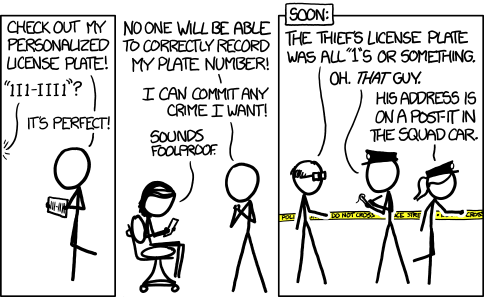Can you imagine that police officers themselves were the ones kidnapping or committing extortion to the very citizens they are meant to protect? This article examines the issue and poses questions for research purposes. You might want to help shape enforcement policy by doing research along the questions identified.
A kidnapping and extortion incident broke in the headlines a few days ago in the Philippines. Allegedly, a businessman was held at gunpoint by an organized team of gun-toting individuals.
Someone passing through the scene thought of taking a picture and uploaded the picture in the internet—with success, because it took the attention of the netizens, and most importantly, honest police officers who swore to uphold the law.

Why use the term “honest?” That’s because those gun-toting individuals trapping a vehicle using three privately-owned cars in the picture were police officers themselves! The system of CCTV cameras somehow made out the plate numbers.
What ever happened to the police officers who should be the ones protecting the citizens? And to think that the police officers get their support from the citizens through taxes.
A large part of my salary goes to tax. Indirectly, I am paying these police officers for their services. For what?
It is a sad fact that police officers were involved in that embarrassing situation at broad daylight. How could such thing happen? At least that’s how everyone is treating the whole thing—the police officers are the ones at fault.
This kidnapping incident is actually not the first time that happened in the country. There were similar events that happened in the past. The difference is that those were not so celebrated because nobody documented the operation.
Exploratory Research Questions
I have not yet heard substantial responses from those involved. Is it also possible that they were just victims of a frame up? Who took the picture? Should that person be likewise investigated? Is there a possibility that both sides are actually involved in something nasty or illegal?
Several other questions popped in my mind:
- Why did the police officers behave the way they did?
- Are they not aware and mindful that the citizens are their primary clientèle as they are paid by the government?
- Are their superiors aware of their actions and are also involved? Up to what rank is involved in the illegal activity?
- Did their training in the police academy fail to inculcate the proper values?
- Did the educational system fail in general?
- Did the parents inculcate the right values to their children?
In reference to the last question, Freud advanced that the first five years of a person’s life are crucial to the development of the adult personality (McLeod 2008). Whoever mentored or taught these police officers when they were still young children have influenced their minds and behavior. How were they raised?
Suggested Research Questions to Clarify the Issue
For those taking higher degrees in criminology, answers to the following questions may be sought based on the case described above:
- What is the level of commitment of police officers to their duties?
- How high is the morale of the officers and the rank-and-file?
- Is there a relationship between police officers’ officers’ profile and their propensity to commit crime? Which factor is most influential?
- Is there a relationship between the management style of superiors and the behavior of their subordinates?
- Is the recruitment system for police officers stringent enough to weed off undesirable individuals from the police force?
Answers to these questions will somehow help institute appropriate government policies to prevent, minimize, reduce or eliminate commission of crimes like this in the future. Research is a powerful tool that well-meaning managers of human resources should consider. Palliative, non-working, hit-and-miss policies or approach that serve to “cure” instead of prevent is more costly.
Reference
McLeod, S. A. (2008). Psychosexual Stages. Retrieved from http://www.simplypsychology.org/psychosexual.html
© 2014 September 13 P. A. Regoniel

